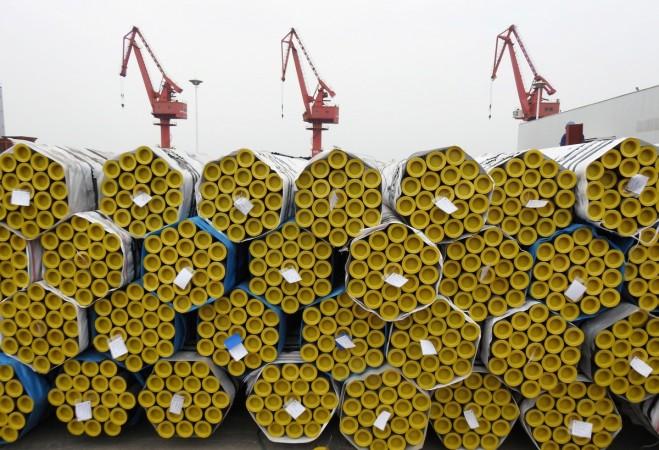
China received a massive blow on Wednesday when global agency Moody's Investors Service downgraded its sovereign debt from A1 from Aa3 and changed the outlook to stable from negative. The downgrade is the first since 1989 and is being seen as a challenge to President Xi Jinping's leadership.
"The downgrade reflects Moody's expectation that China's financial strength will erode somewhat over the coming years, with economy-wide debt continuing to rise as potential growth slows," the ratings agency said in a statement.
"While ongoing progress on reforms is likely to transform the economy and financial system over time, it is not likely to prevent a further material rise in economy-wide debt, and the consequent increase in contingent liabilities for the government," the agency added.
The dampener comes after China's economic growth rate slowed to 6.7 percent, the lowest in 26 years. "According to the preliminary estimation, the gross domestic product (GDP) of China was 74,412.7 billion yuan in 2016, an increase of 6.7 percent compared with last year," the National Bureau of Statistics of China had said in a statement on January 20 this year.
Moody's also downgraded China's senior unsecured foreign currency shelf rating is also downgraded to (P)A1 from (P)Aa3.
Here is what Moody's Investors Service said:
"While China's GDP will remain very large, and growth will remain high compared to other sovereigns, potential growth is likely to fall in the coming years. The importance the Chinese authorities attach to growth suggests that the corresponding fall in official growth targets is likely to be more gradual, rendering the economy increasingly reliant on policy stimulus.
"GDP growth has decelerated in recent years from a peak of 10.6% in 2010 to 6.7% in 2016. This slowdown largely reflects a structural adjustment that we expect to continue. Looking ahead, we expect China's growth potential to decline to close to 5% over the next five years, for three reasons.
"First, capital stock formation will slow as investment accounts for a diminishing share of total expenditure. Second, the fall in the working age population that started in 2014 will accelerate. Third, we do not expect a reversal in the productivity slowdown that has taken place in the last few years, despite additional investment and higher skills."
The news comes just as the Indian economy continues to remain the world's fastest-growing economy and a recipient of foreign direct investment (FDI) at record levels.
However, the downgrading of China's sovereign rating does not entail benefits for the Indian economy. If any, a weak China, which is also one of the world's biggest importers of many commodities, often triggers a fall in commodity prices, impacting Indian metal manufacturers.









!['Had denied Housefull franchise as they wanted me to wear a bikini': Tia Bajpai on turning down bold scripts [Exclusive]](https://data1.ibtimes.co.in/en/full/806605/had-denied-housefull-franchise-they-wanted-me-wear-bikini-tia-bajpai-turning-down-bold.png?w=220&h=138)



